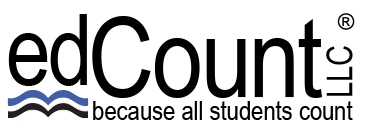edCount recently completed a multi-year project (2012-2016) in collaboration with the REL Mid-Atlantic to host the Educator Effectiveness Webinar Series and the Ask an Expert Webinar Series. The REL-MA is one of 10 Regional Educational Laboratories (RELs) across the United States that are supported by the U.S. Department of Education and work in partnership with states, school districts, and other relevant stakeholders to support the use of evidence in improving academic outcomes for students. The REL-MA serves Pennsylvania, Maryland, Delaware, New Jersey, and the District of Columbia. The Educator Effectiveness Webinar Series was designed to provide participants the opportunity to acquire knowledge about various aspects of educator effectiveness in a way that would allow them to apply this knowledge to support instruction, leadership, and improved student outcomes. edCount collaborated with respected and well-known experts to prepare and conduct 40 interactive and engaging webinars that reached a diverse audience of educators (state, local, and university), researchers, policymakers, parents, and community members. The recorded REL-MA webinars can be found on the Institute of Education Sciences (IES) YouTube channel. A sample of the more popular webinars on the IES channel can be viewed here, here, and here.
edCount also assisted in responding to questions that came in from educators through the Ask A REL collaborative reference desk service which provides references, referrals, and brief responses in the form of citations on research-based education questions. edCount prepared responses to questions regarding a variety of topics including English Learners, student engagement strategies, teacher mentoring, and guided reading strategies. edCount also led REL-MA’s efforts to address data management needs of state education agencies (SEAs), local education agencies (LEAs), and research organizations in the region. Included in this work was the facilitation of roundtable workshops for SEA representatives to share their needs, concerns, and experiences to streamline data requests and facilitate better access to high quality data that supports research efforts.
